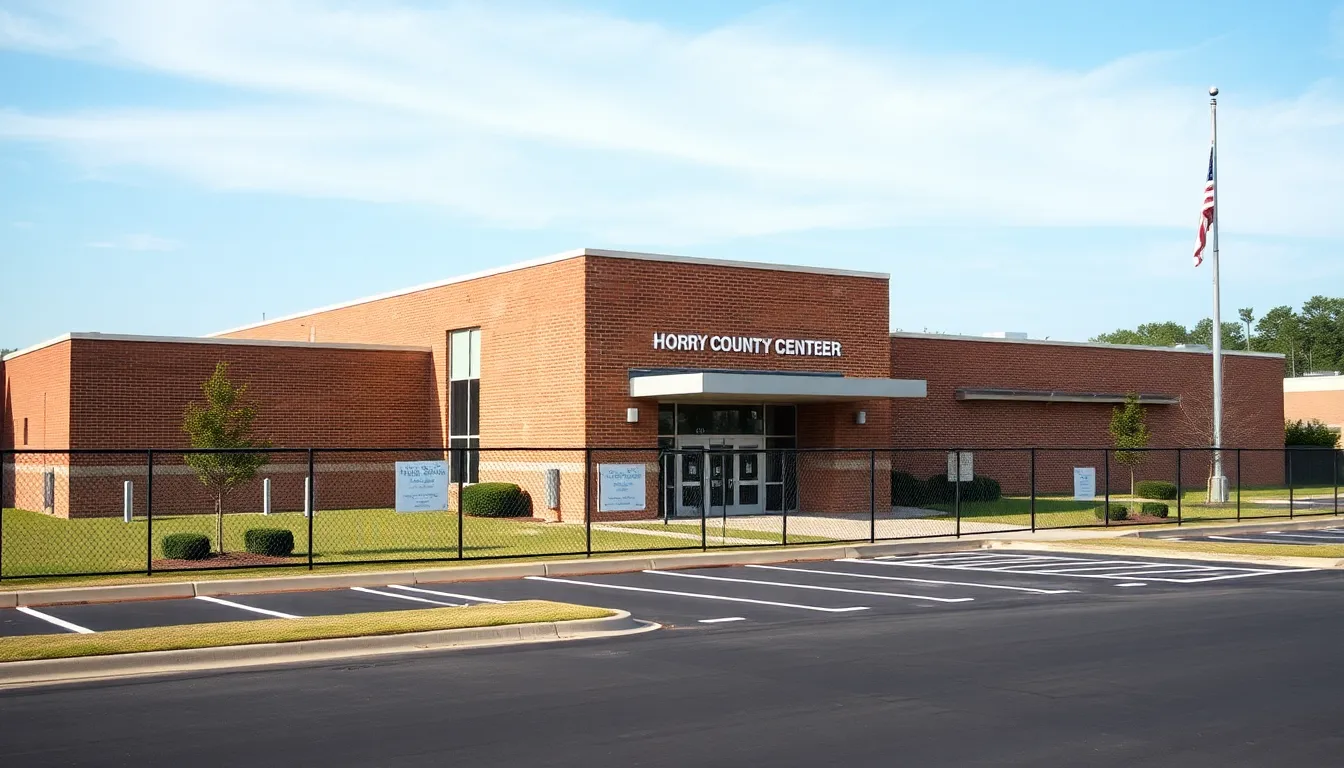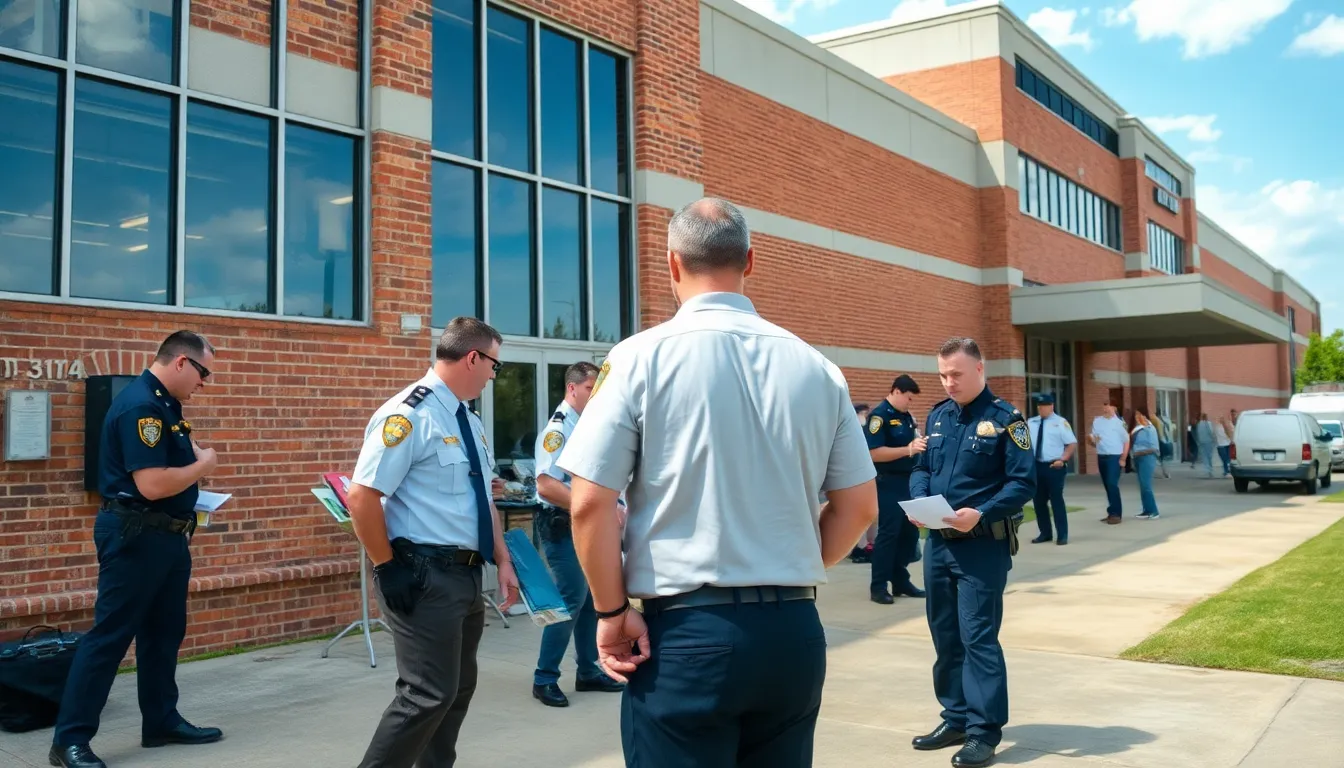In the bustling world of Horry County, where the sun shines bright and the beaches beckon, there’s another side that often goes unnoticed – the local booking and release scene. While most folks are soaking up the sun, others are navigating the twists and turns of law enforcement. It’s a wild ride, filled with unexpected characters and stories that could rival any reality TV show.
Table of Contents
ToggleOverview of Horry County Bookings and Releases
Horry County’s booking and release system plays a significant role in local law enforcement. This process involves the detention and subsequent release of individuals accused of various offenses. Occasionally, individuals arrested in Horry County face charges ranging from misdemeanors to felonies.
Booking procedures typically take place at local detention centers. Officers collect personal information, fingerprints, and photographs during this initial stage. Data regarding recent bookings can usually be accessed online, providing transparency for residents.
Release procedures follow stringent guidelines. After a court appearance, individuals may receive bail or be released on their own recognizance. Information on recent releases is also available, allowing community members to stay informed about detention facility activities.
Legal outcomes vary based on the nature of charges. Some individuals may face lengthy sentences due to serious offenses. Others could potentially receive community service or probation for less severe charges.
Understanding these processes enhances the community’s awareness of the judicial system. Many locals find value in tracking bookings and releases. Such insights may empower residents to engage with their community and advocate for justice and safety.
Statistics show fluctuations in booking rates over time. According to the South Carolina Department of Corrections, Horry County experienced an increase in bookings by 15% in 2022 compared to the previous year. Such trends signal the need for continued vigilance and community involvement regarding law enforcement efforts.
Process of Booking in Horry County

Booking in Horry County involves several essential steps. First, law enforcement officers bring individuals to a detention center for processing. Next, staff collects personal information, such as name, address, and date of birth. The process includes taking fingerprints, which helps to verify identities and check criminal history. Following this, a booking photograph, often called a mugshot, captures the individual’s appearance at that moment. After completing the paperwork, individuals receive a list of charges they face. This structured approach ensures accurate records and accountability within the justice system.
Steps Involved in the Booking Process
- Arriving at the detention center starts the booking procedure.
- Collecting personal information establishes the individual’s identity.
- Taking fingerprints allows officers to check for prior offenses.
- Capturing a booking photograph documents the individual’s appearance.
- Completing the paperwork secures official records for future reference.
Common Reasons for Booking
Numerous reasons lead to booking in Horry County. Drug-related offenses rank among the most common, including possession or distribution of illegal substances. Theft also accounts for a significant percentage, whether through burglary or shoplifting incidents. Domestic violence cases frequently result in bookings, reflecting ongoing community challenges. Traffic violations, particularly those involving DUI or reckless driving, contribute to the overall statistics. The range of offenses highlights the diverse nature of law enforcement activities in the region.
Release Procedures in Horry County
Release procedures in Horry County involve several steps, ensuring a transparent process for individuals leaving detention.
Eligibility for Release
Individuals qualify for release based on various factors, including the nature of their charges and jail behavior. Those with minor offenses often receive quicker evaluations for release, especially when community ties and no prior history exist. Moreover, employing a bail bondsman offers additional possibilities for faster release. Specific programs may also allow for alternatives to incarceration, particularly for first-time offenders or individuals demonstrating good behavior while in custody. In cases of serious charges, judges may impose stricter conditions, leading to longer stays.
Types of Release Options
Several release options operate within Horry County’s justice system. Individuals may secure release through cash bail, where payment suffices to satisfy court obligations. Personal recognizance offers a different path, allowing individuals to exit detention without payment, based on their promise to appear in court. Additionally, supervised release programs enable those awaiting trial to live in the community under monitored conditions, reducing overcrowding in detention centers. Classifying the nature of the offense and the individual’s criminal history ultimately plays a significant role in determining the most appropriate release method.
Impact of Bookings and Releases on the Community
Bookings and releases significantly influence the daily lives of Horry County residents. Increased bookings present challenges for local law enforcement and community resources. A 15% rise in bookings in 2022 indicates growing concerns regarding crime and safety. This surge impacts not just the individuals involved but also their families and neighborhoods.
Releases also carry considerable weight in community dynamics. Individuals released from detention often face hurdles such as finding employment and rebuilding relationships. Adjusting back into society can prove daunting, particularly for those without strong support systems. Successful reintegration relies on access to resources and community programs that promote stability.
Local businesses feel the effects of these processes too. When an individual faces arrest, their economic contributions cease, impacting job stability and local revenue. Conversely, successful release programs can enhance economic engagement by helping individuals remain connected to their jobs and families.
Enhanced community awareness plays a crucial role. Programs that educate residents on the booking and release process foster understanding and collaboration. Transparency in how these systems work can lead to increased support for rehabilitation efforts.
Maintaining communication between law enforcement and community members is essential. Collaborative initiatives allow for better response strategies tailored to specific community needs. Effective partnerships can reduce recidivism rates, ultimately ensuring a safer environment for all individuals in Horry County.
Understanding the booking and release process in Horry County reveals a complex interplay between law enforcement and community dynamics. As bookings continue to rise the need for awareness and engagement becomes increasingly vital. The challenges faced by individuals reentering society highlight the importance of support systems and effective rehabilitation programs.
Communities that foster communication with law enforcement can play a significant role in reducing recidivism and enhancing overall safety. By staying informed about local issues related to bookings and releases residents can contribute to a more cohesive and resilient community. This knowledge not only aids in personal understanding but also promotes a proactive approach towards crime and rehabilitation in Horry County.







